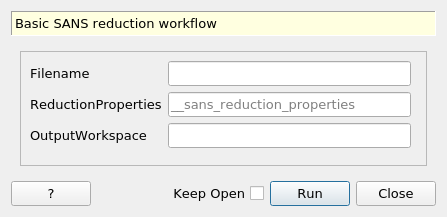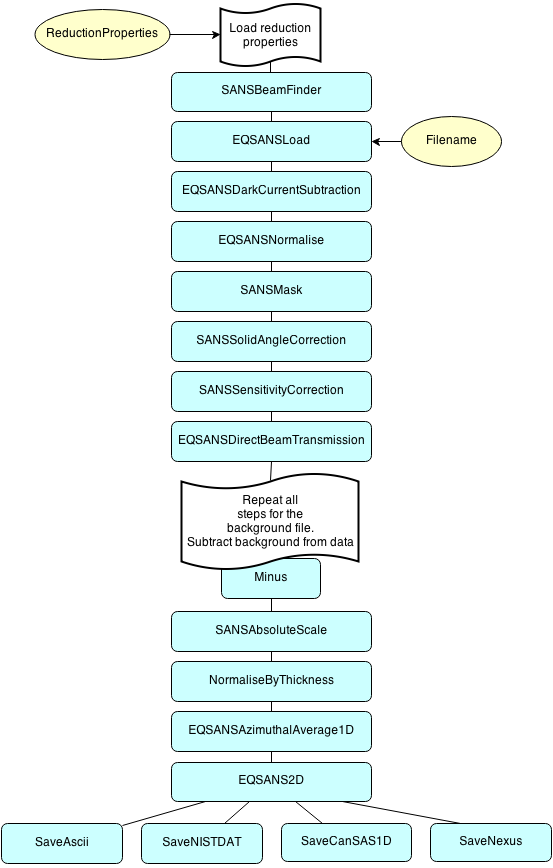\(\renewcommand\AA{\unicode{x212B}}\)
SANSReduction v1¶

SANSReduction dialog.¶
Summary¶
Basic SANS reduction workflow
Properties¶
Name |
Direction |
Type |
Default |
Description |
|---|---|---|---|---|
Filename |
Input |
string |
List of input file paths |
|
ReductionProperties |
Input |
string |
__sans_reduction_properties |
Property manager name for the reduction |
OutputWorkspace |
Input |
string |
Reduced workspace |
|
OutputMessage |
Output |
string |
Output message |
Description¶
Executes the SANS reduction workflow according to the options set by SetupEQSANSReduction. Those options are saved in a PropertyManager object that is passed through ReductionProperties.
The workflow proceeds as follows:
Execute the beam finder algorithm. Usually SANSBeamFinder.
Load the data to be reduced, usually with EQSANSLoad, which will move the detector to the right position.
Subtract the dark current, usually with EQSANSDarkCurrentSubtraction.
Normalize the data, usually with EQSANSNormalise.
Mask detector pixels as appropriate, usually with SANSMask.
Apply the solid angle correction, usually with SANSSolidAngleCorrection.
Apply the sensitivity correction, usually with SANSSensitivityCorrection. When applicable, a separate beam center position can be determined for the sensitivity data.
Compute and apply the transmission correction, usually with EQSANSDirectBeamTransmission. When applicable, a separate beam center position can be determined for the transmission data.
Repeat steps 2 to 8 for the background run, then subtract the background from the sample data.
Perform the absolute scaling, usually with SANSAbsoluteScale.
Perform any geometrical correction, which is usually a call to NormaliseByThickness.
Perform the I(Q) calculation with EQSANSAzimuthalAverage1D.
Perform the I(Qx,Qy) calculation with EQSANSQ2D.
Save the I(Q) output using SaveAscii and using SaveCanSAS1D.
Save the I(Qx,Qy) output using SaveNISTDAT and SaveNexus.

Categories: AlgorithmIndex | Workflow\SANS\UsesPropertyManager
Source¶
Python: SANSReduction.py
